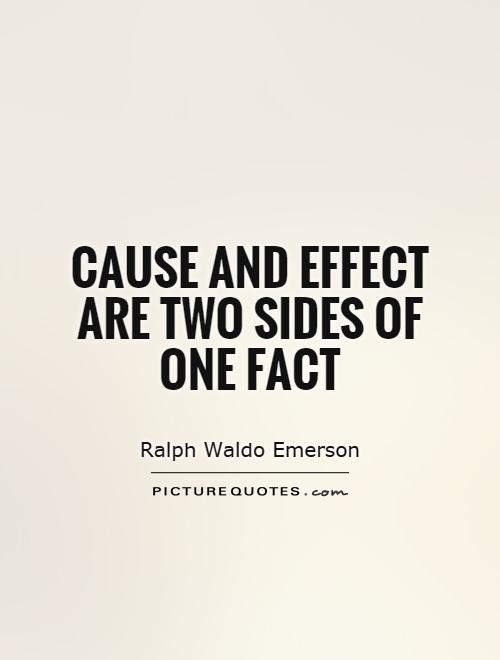Cause and effect are two sides of one fact

Cause and effect are two sides of one fact
Ralph Waldo Emerson, a renowned American essayist, lecturer, and poet, was a firm believer in the interconnectedness of cause and effect. In his works, Emerson often explored the idea that every action has a consequence, and that the world operates according to a series of interconnected events. He believed that cause and effect are not separate entities, but rather two sides of the same coin, working in harmony to create the fabric of existence.Emerson's philosophy on cause and effect can be seen in his essay "Compensation," where he argues that every action we take has a corresponding reaction. He believed that the universe operates according to a system of balance, where every cause has an effect, and every effect has a cause. This idea is reflected in his famous quote, "The law of cause and effect is the law of laws."
Emerson also believed that our thoughts and actions have a direct impact on our lives and the world around us. He argued that our thoughts create our reality, and that by changing our thoughts, we can change our circumstances. This idea is encapsulated in his quote, "Shallow men believe in luck. Strong men believe in cause and effect."
Emerson's belief in the interconnectedness of cause and effect can also be seen in his essay "Self-Reliance," where he encourages individuals to take responsibility for their actions and their lives. He believed that we are all interconnected, and that our actions have a ripple effect on the world around us. He urged people to think for themselves and to act in accordance with their own beliefs and values, rather than conforming to societal norms.












 Friendship Quotes
Friendship Quotes Love Quotes
Love Quotes Life Quotes
Life Quotes Funny Quotes
Funny Quotes Motivational Quotes
Motivational Quotes Inspirational Quotes
Inspirational Quotes